1-800-982-4730
1-800-982-4730
Many people love starting their day with a cup of coffee. However, some individuals may experience dizziness after drinking coffee. This can be a concerning and uncomfortable experience, leaving one wondering why this is happening to them.
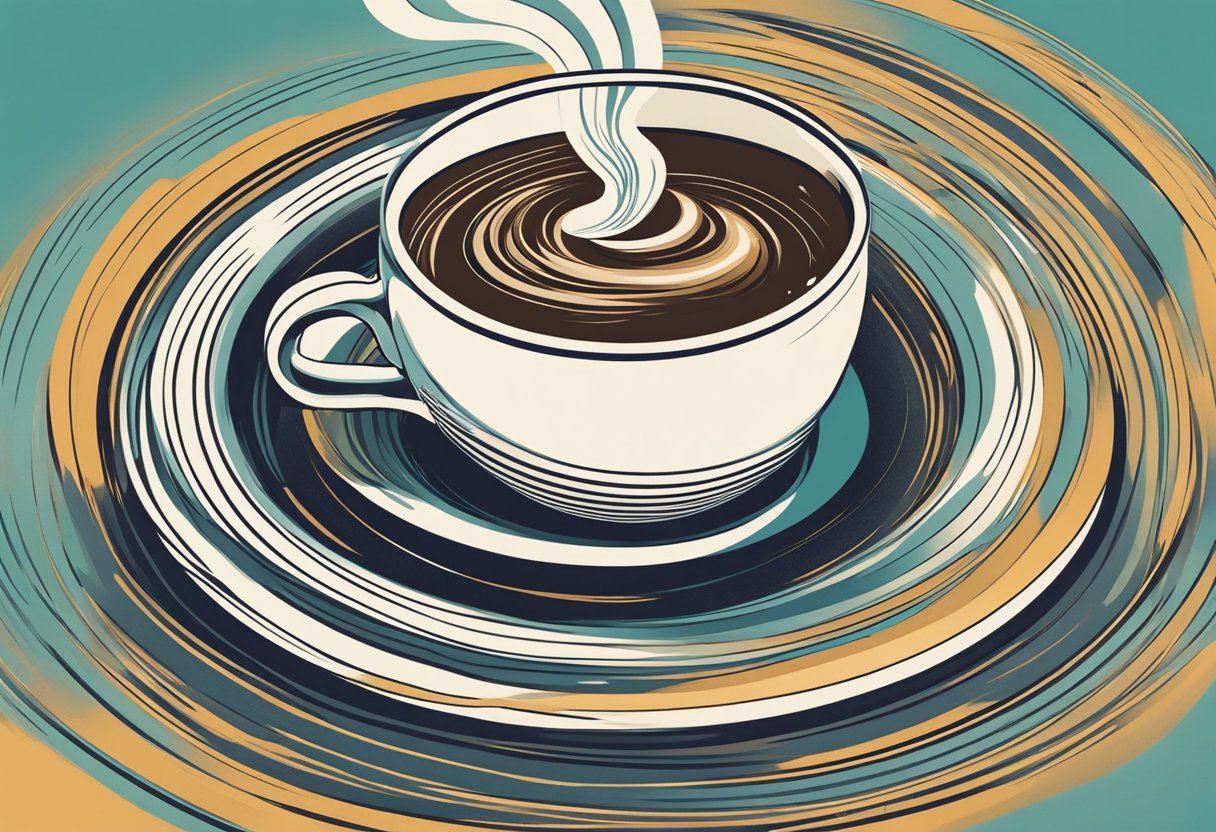
There are several reasons why someone may feel dizzy after consuming coffee. One of the most common reasons is caffeine sensitivity. Some individuals have a low tolerance for caffeine, which can lead to dizziness, headaches, and other symptoms. Other factors such as age, health conditions, and medications can also contribute to feeling dizzy after coffee consumption.
It is important to note that decaf coffee still contains a small amount of caffeine, which can also lead to dizziness. Additionally, consuming coffee on an empty stomach can cause stomach lining erosion and jitters, which can further exacerbate feelings of dizziness. Understanding the reasons behind feeling dizzy after drinking coffee can help individuals make informed decisions about their caffeine consumption and overall health.
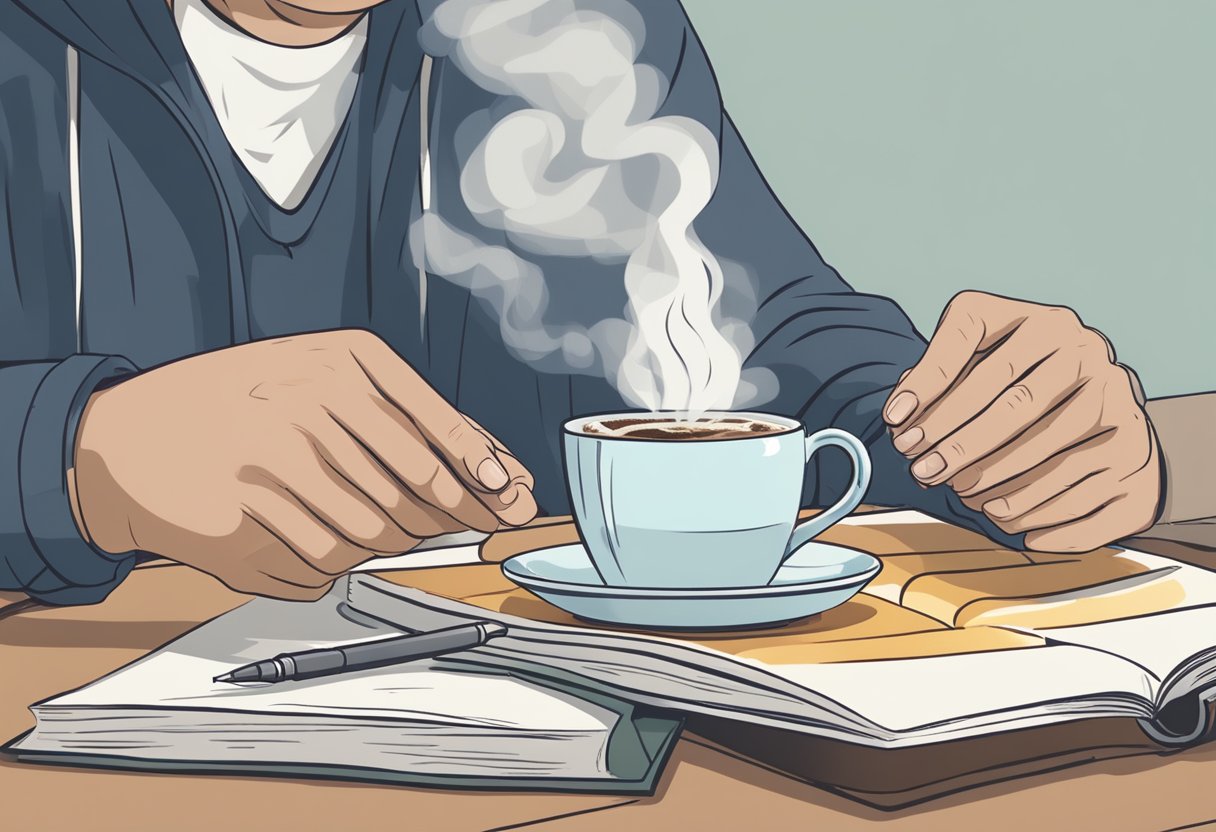
Coffee is a popular beverage consumed by millions of people around the world. It is made from roasted coffee beans and contains caffeine, a natural stimulant that affects the central nervous system. Caffeine is also found in other beverages, such as tea and energy drinks, as well as in some foods like chocolate.
The amount of caffeine in coffee can vary depending on the type of coffee and the method of preparation. For example, a cup of brewed coffee typically contains more caffeine than a cup of instant coffee. Decaffeinated coffee is also available for those who wish to avoid caffeine.
Caffeine is a stimulant that can increase alertness and energy levels. It works by blocking the action of a neurotransmitter called adenosine, which is responsible for promoting sleep and suppressing arousal. By blocking adenosine, caffeine increases the activity of other neurotransmitters that promote wakefulness, such as dopamine and norepinephrine.
However, too much caffeine can have negative effects on the body. It can cause jitteriness, anxiety, and insomnia, as well as increase heart rate and blood pressure. Some people may also experience dizziness after consuming caffeine, especially if they have a low tolerance for it.
Other natural stimulants that can be found in some beverages include theophylline, which is found in tea leaves, and kola nuts, which are used to make some types of soda. These stimulants can also have effects on the body similar to caffeine, such as increased heart rate and blood pressure.
In summary, coffee contains caffeine, a natural stimulant that can increase alertness and energy levels. However, too much caffeine can have negative effects on the body, including dizziness. Decaffeinated coffee is available for those who wish to avoid caffeine. Other natural stimulants can also be found in some beverages, such as tea leaves and kola nuts.
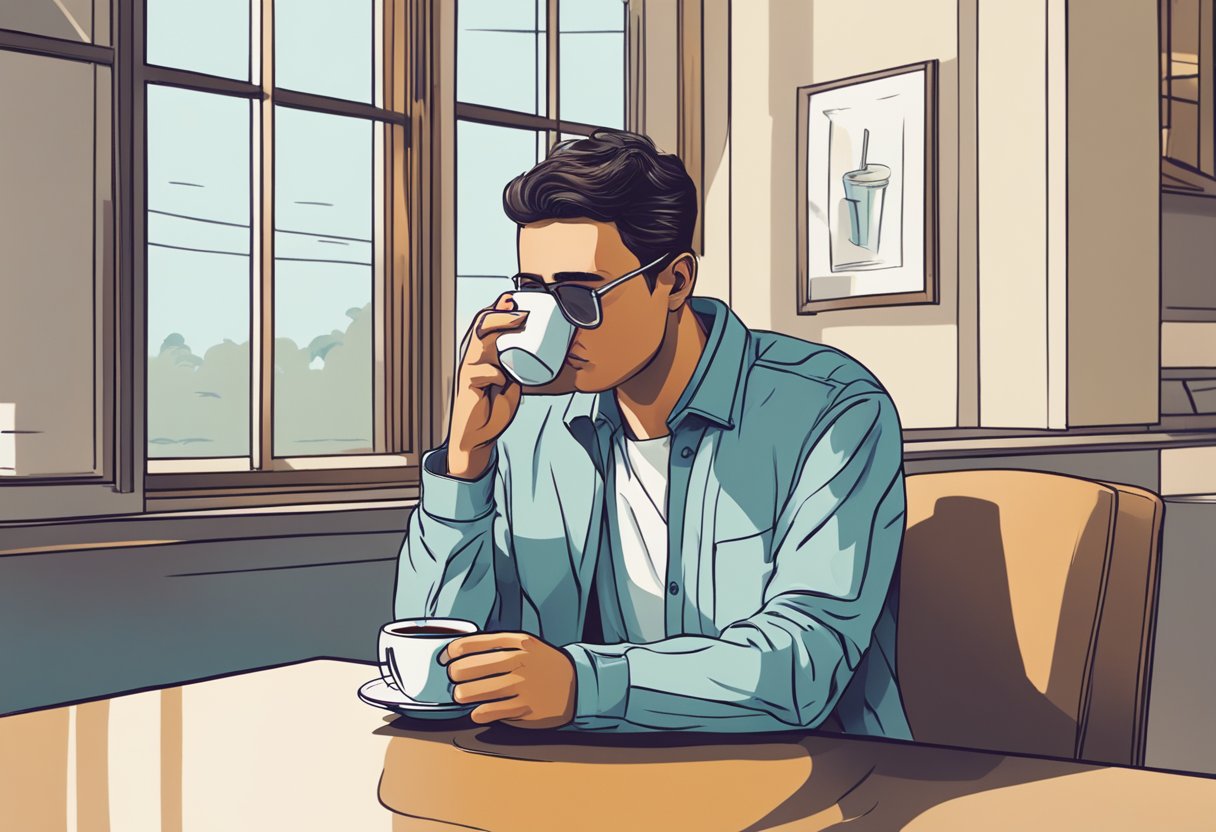
Coffee is a popular beverage consumed by millions of people worldwide. However, some individuals experience dizziness after drinking coffee. This section will explain why coffee can cause dizziness and what factors contribute to this phenomenon.
The main reason why coffee causes dizziness is due to its caffeine content. Caffeine is a stimulant that affects the central nervous system and can cause an increase in heart rate, blood pressure, and blood flow to the brain. This increase in blood flow can cause dizziness, especially in individuals who have a low tolerance for caffeine.
Another factor that can contribute to dizziness after drinking coffee is the acidity of the beverage. Coffee is an acidic drink, and consuming it on an empty stomach can cause acid to build up in the stomach, leading to nausea, dizziness, and other negative side effects.
In addition, coffee is a diuretic, which means it can increase urine production and cause dehydration. Dehydration can lead to a decrease in blood volume, which can cause dizziness and lightheadedness.
Individuals who have high blood pressure or are sensitive to caffeine may also experience dizziness after drinking coffee. Caffeine can cause an increase in blood pressure, which can lead to dizziness and headaches.
Lastly, some individuals may experience dizziness due to anxiety or stress caused by caffeine intake. Caffeine can cause jitters, restlessness, and insomnia, which can lead to difficulty breathing and dizziness.
In summary, coffee can cause dizziness due to its caffeine content, acidity, diuretic properties, and impact on blood pressure and blood flow. Individuals who experience dizziness after drinking coffee should consider reducing their caffeine intake, consuming coffee with food, and staying hydrated.
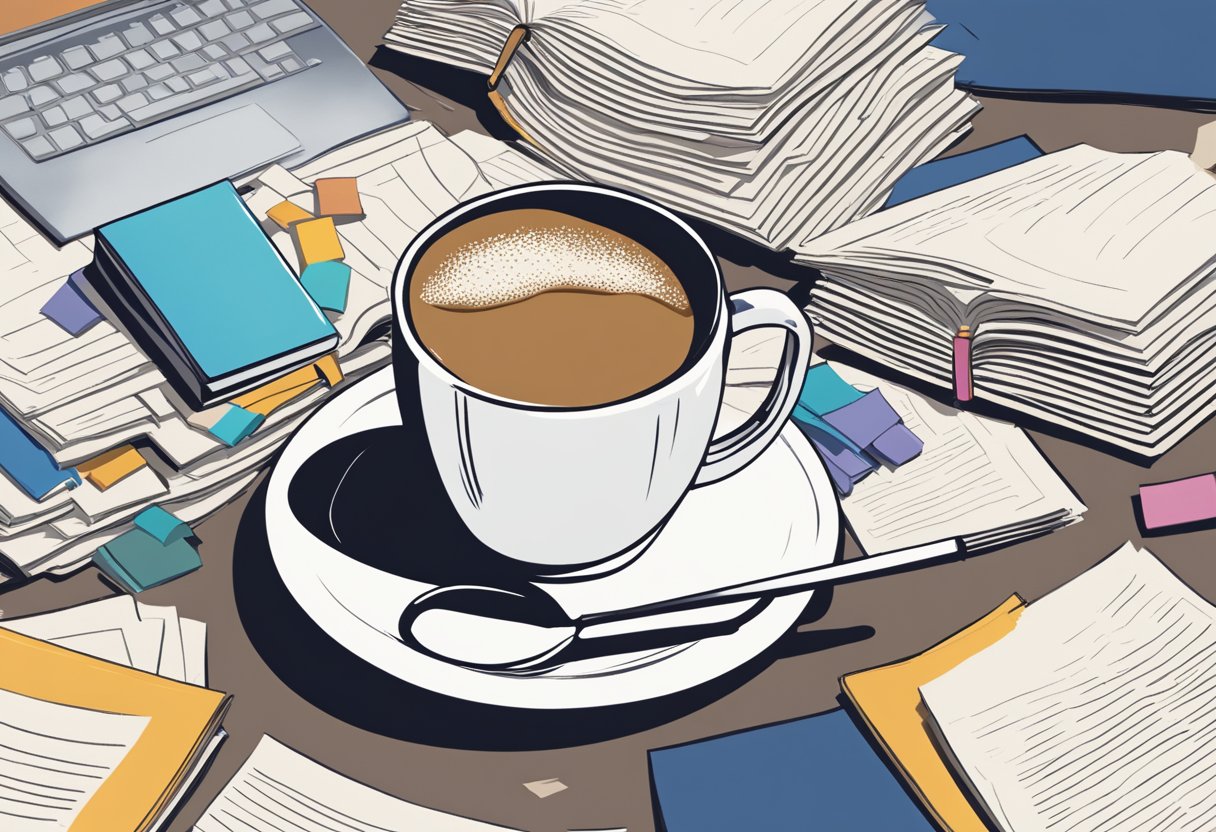
Coffee is a popular beverage that is consumed by millions of people around the world. However, the effects of coffee can vary from person to person. There are several factors that can influence how coffee affects an individual.
Age can play a role in how coffee affects an individual. As people age, their metabolism slows down, which can make it more difficult for the body to process caffeine. This can lead to a longer-lasting and more intense caffeine buzz, which can cause dizziness.
Genetics can also influence how coffee affects an individual. Some people are more sensitive to caffeine than others due to their genetic makeup. This can make them more prone to experiencing dizziness after drinking coffee.
Lifestyle changes can also impact how coffee affects an individual. For example, if someone starts exercising regularly, this can increase their metabolism and make it easier for their body to process caffeine. On the other hand, if someone is not getting enough sleep or is under a lot of stress, this can make them more susceptible to feeling dizzy after drinking coffee.
Certain medications and health conditions can also affect how coffee affects an individual. For example, some antidepressants can interact with caffeine and cause dizziness. Additionally, people with irritable bowel syndrome or migraine headaches may be more sensitive to caffeine and more likely to experience dizziness after drinking coffee.
Dehydration can also contribute to feelings of dizziness after drinking coffee. Caffeine is a diuretic, which means it can cause increased urination and potentially lead to dehydration. It is important to stay hydrated by drinking plenty of water throughout the day, especially when consuming caffeine.
In conclusion, there are several factors that can influence how coffee affects an individual. Age, genetics, lifestyle changes, medications and health conditions, and dehydration can all play a role in causing dizziness after drinking coffee. It is important to be aware of these factors and to take steps to minimize the risk of experiencing negative side effects from caffeine consumption.
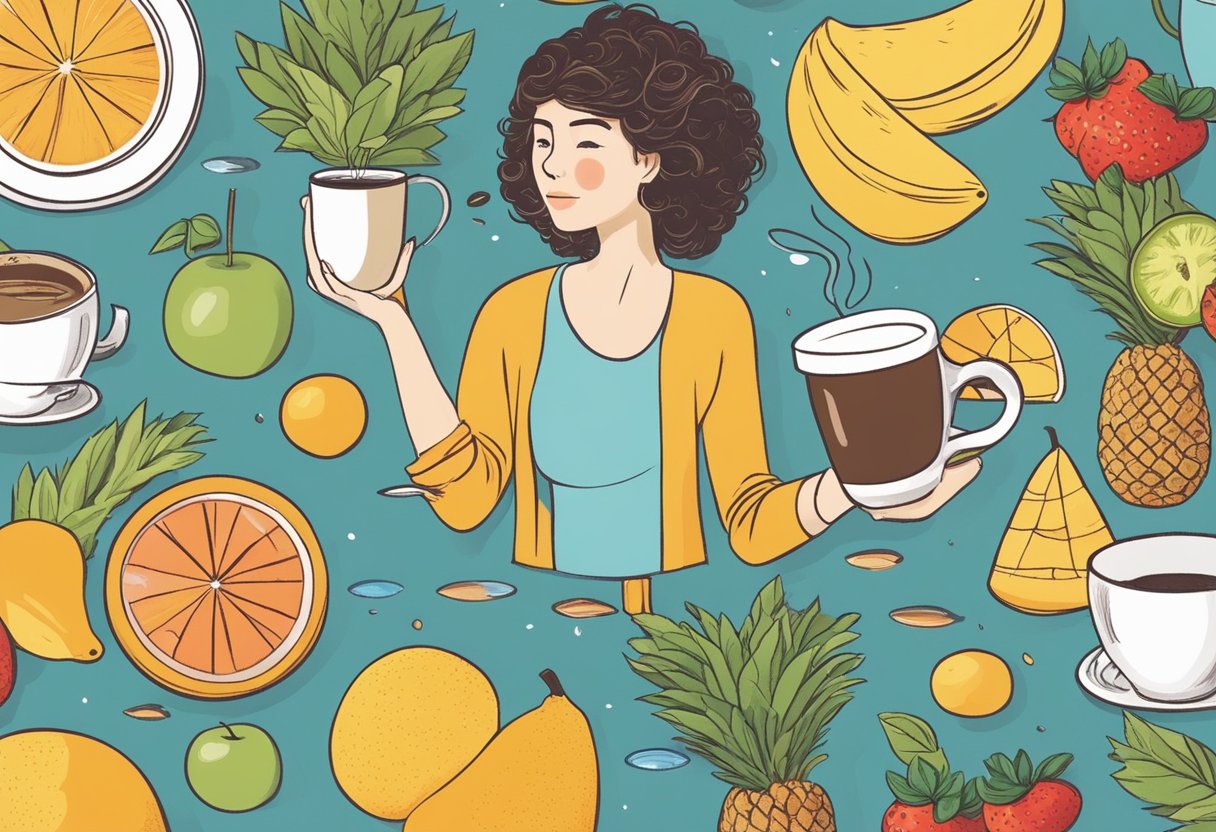
For some people, drinking coffee can cause dizziness and lightheadedness. However, there are ways to mitigate these effects and continue to enjoy coffee without discomfort.
One way to reduce the effects of coffee is to switch to decaf or tea. Decaf coffee still contains a small amount of caffeine, but it is much less than regular coffee. Tea is also a good alternative, as it contains less caffeine than coffee and can provide a similar energy boost.
Another way to reduce the effects of coffee is to limit the amount of caffeine consumed daily. The Mayo Clinic recommends no more than 400 milligrams of caffeine per day, which is equivalent to about four cups of coffee. It is also important to note that energy drinks, soda, and some medications also contain caffeine and should be taken into consideration when calculating daily caffeine intake.
Increasing vitamin D intake can also help reduce the effects of coffee. Vitamin D deficiency has been linked to increased caffeine sensitivity, so adding vitamin D-rich foods like eggs to the diet or taking a vitamin D supplement may help.
Breathing exercises can also be helpful in reducing the effects of coffee. Taking slow, deep breaths can help calm the body and reduce feelings of dizziness and lightheadedness.
Choosing darker roasts can also help reduce the effects of coffee. Darker roasts typically have less caffeine than lighter roasts, so switching to a darker roast may help reduce the amount of caffeine consumed.
If the effects of coffee persist, it may be helpful to consult a doctor. They can provide advice and recommend supplements like echinacea or plants like ginseng that may help reduce caffeine sensitivity. It is also important to note that alcohol can exacerbate the effects of caffeine, so it is best to avoid drinking coffee and alcohol together.